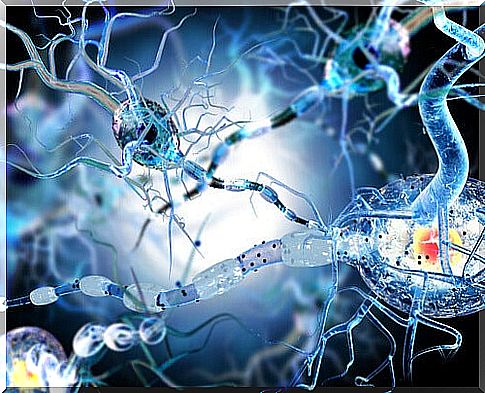Vigabatrin In The Treatment Of Epilepsy
Vigabatrin is an antiepileptic drug that should be used with caution due to its adverse reaction profile.

In the last 30 years there has been a renewal in the pharmacology of epilepsy seeking to improve the efficacy and reduce the adverse effects of this type of medication. Among the drugs that have emerged is vigabatrin, which increases the concentration of GABA and reduces the appearance of epileptic seizures.
Epilepsy affects 1% of the population, around 50 million people worldwide. In most cases there is no obvious cause, although it may appear as a result of trauma, tumors or infections.
What is epilepsy?

Epilepsy is a very common pathology characterized by the succession of seizures due to uncoordinated neuronal discharges. In order for the brain to carry out its actions correctly, it needs an orderly discharge of electrical impulses. When this does not happen, seizures appear.
The type of seizure depends on the part of the brain that is affected. Regarding the types of epilepsy that exist, we can roughly differentiate between partial and generalized seizures.
Antiepileptic drugs

Drugs used to treat epilepsy and seizures are popularly known as antiepileptics or anticonvulsants. It has been shown that with adequate pharmacological treatment up to 75% of patients can be controlled, being a disease that greatly alters the quality of life.
In general, epilepsy treatments are often made up of several types of drugs. In turn, its continued administration for years is usually necessary. This is why special attention should be paid to the adverse reactions of this type of medication.
Antiepileptic drugs on the market can act through one of the following mechanisms. It is important to note that the same drug can fulfill several of these functions:
- Decreased propagation of neuronal impulses. This action occurs by blocking the sodium channels of neurons.
- Enhancement of the action of GABA. GABA is an inhibitory mediator, so its enhancement decreases neuronal activity. This can be achieved by inhibiting some enzymes such as GABA-T or reducing reuptake.
- Inhibition of calcium channels.
Vigabatrin in the treatment of epilepsy
Vigabatrin is an antiepileptic drug that exerts its function through the irreversible inhibition of the enzyme GABA-T (GABA transaminase).
This enzyme is involved in the degradation of GABA so its inhibition will increase its concentration. The increase in GABA will inhibit the propagation of impulses by neurons, thus managing to control epileptic seizures.
Vigabatrin is part of the treatment in patients with drug-resistant partial epilepsy. Likewise, it is also used in the treatment of infantile spasms (West syndrome).
This drug is contraindicated in cases of hypersensitivity, as well as during pregnancy and lactation. It must be administered with care as it easily interacts with other anticonvulsants such as phenobarbital, phenytoin or primidone.
However, despite the fact that vigabatrin has a simple dosage regimen, it has other problems. Some of the adverse reactions that can precipitate are irreversible visual field alterations, depression or hallucinations. Consult with your doctor about the need to take vigabatrin to treat epilepsy.









